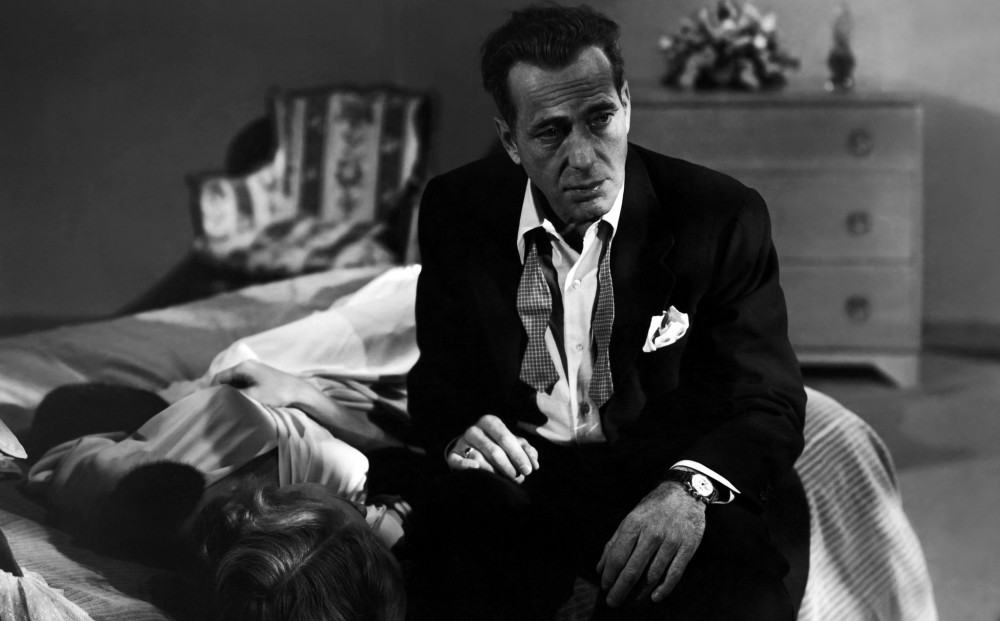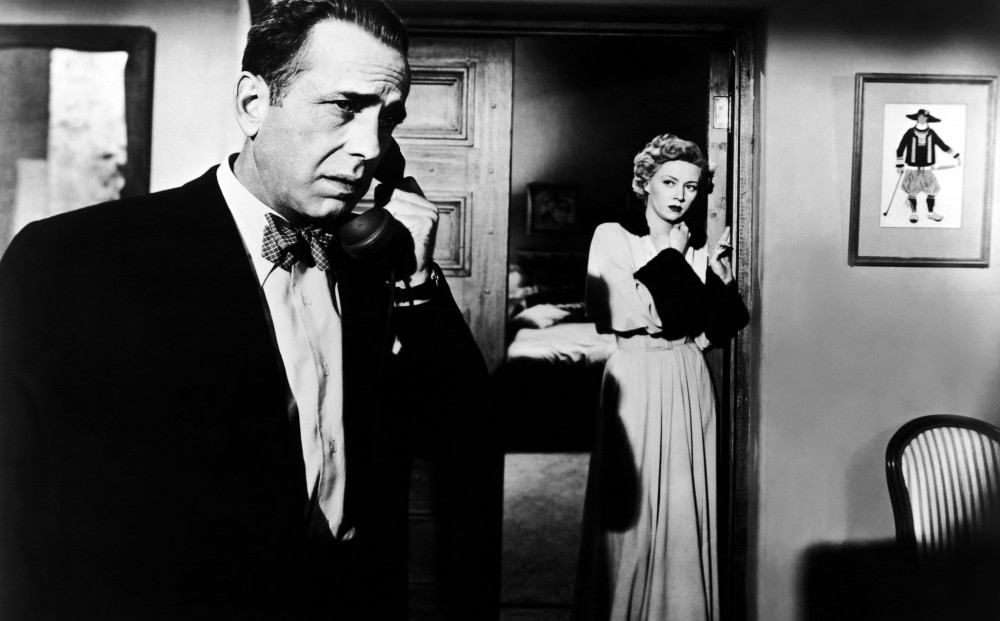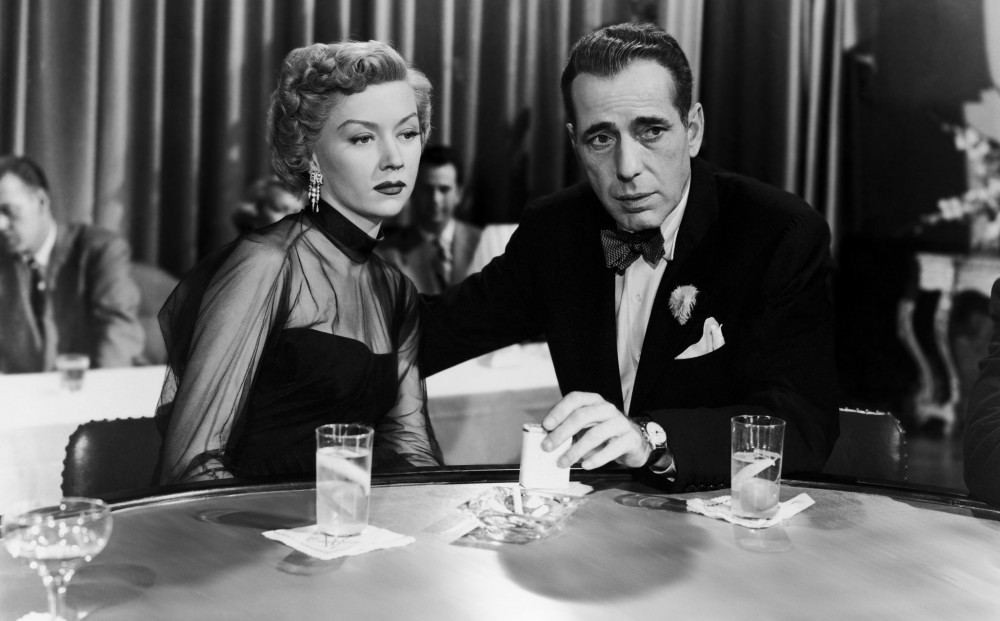IN A LONELY PLACE
Saturday, July 17
9:00
(1950, Nicholas Ray) Humphrey Bogart is a vicious killer? Okay, he’s a hard-drinking, log-sized-chip-on-his shoulder screenwriter with a sardonic cynicism so deep he enlists a hatcheck girl as overnight novel summarizer so he doesn’t actually have to read the trashy book he’s agreed to adapt, stopping to take a poke at an asking-for-it producer’s son-in-law along the way. Even when she winds up dead, and he’s being grilled by old army buddy Frank Lovejoy, it turns into an occasion for girl-across-the-courtyard (an exact reproduction of Ray’s first Hollywood pad) Gloria Grahame to give Bogie an alibi – and to get to know better an “interesting” face. But as their love affair progresses, Bogie breaks his fussbudget longtime agent’s glasses, creeps out Lovejoy and his wife Jeff Donnell with his too-real “imaginative” reenactment of the murder, and is barely prevented from braining a motorist he’d already sideswiped and beaten senseless. An agonizingly inevitable – but still surprising – resolution looms. Ray boasted “I took the gun out of Bogie’s hands” in altering his screen image; while his own marriage with Grahame ended during the filming – they kept it a secret, fearing Ray would be kicked off the production. DCP. Approx. 93 min.
Reviews
“ONE OF THE DARKEST, HARSHEST, AND MOST DEVASTATING LOVE STORIES EVER MADE... The clash of movie-world scandal with local politics gives the passionate affair a broad backdrop, as does Ray’s fervent depiction of fragile, high-strung artists caught between love and work. Ray—who was married to Grahame at the time—endows the couple’s intimate moments with a bittersweet ardor (which gives rise to a love scene in which Dixon describes how he writes love scenes). The stars are joined by a superb batch of character actors, in such roles as a sentimental agent and a Falstaffian thespian, in sequences that play like bruising chamber music, with two-person face-offs, triangular confrontations, and jousting quartets. Few movies suggest such a forthright flaying of the director’s soul.”
– Richard Brody, The New Yorker
“A radical demystification of the classic Bogart hero.”
– Robert Sklar
“The noir atmosphere of deathly paranoia frames one of the screen’s most adult and touching love affairs; Bogart’s tough-guy insolence is probed to expose a vulnerable, almost psychotic insecurity; while Grahame abandons femme fatale conventions to reveal a character of enormous, subtle complexity. As ever, Ray composes with symbolic precision, confounds audience expectations, and deploys the heightened lyricism of melodrama to produce an achingly poetic meditation on pain, distrust and loss of faith, not to mention an admirably unglamorous portrait of Tinseltown. Never were despair and solitude so romantically alluring.”
– Geoff Andrew, Time Out (London)
“Ray’s self-examination is both narcissistic and sharply critical, in fascinating combination. It’s a breathtaking work, and a key citation in the case for confession as suitable material for art.”
– Dave Kehr, Chicago Reader
“Very rarely, a movie feels so heartfelt, so emotional, so revealing that it seems as though both the actor and the director are standing naked before the audience. When that kind of marriage happens between actor and director, its breathtaking.”
– Curtis Hanson
“One of Ray’s smartest and most devastating masterpieces, it’s not unlike Camus’ The Stranger… the purest of existentialist primers.”
– Ed Gonzalez, Slant Magazine
“Though he came from the upper crust himself, for the first decade of his career Humphrey Bogart most often played brutish thugs; it took The Maltese Falcon and especially Casablanca to cement his new image as a poised sophisticate and romantic lead. Like no other film, In a Lonely Place reveals those two personae to be coterminous, peeling back the courtliness and charm from the snarling predator beneath and exposing at the same time his anguish and vulnerability.”
– Eli Goldfarb, Brooklyn Magazine



